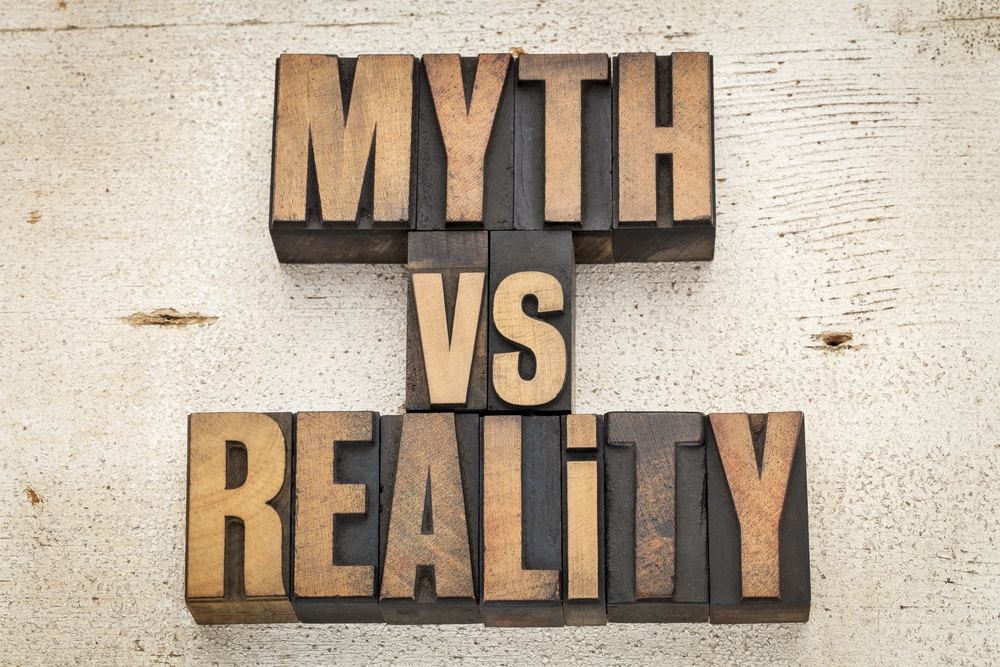We’ve all read internet fake news and passed down family stories about common retirement “rules of thumb”. Google the word “retirement” and you’ll get 748,000,000 results in 0.65 seconds. It’s no wonder there’s so much confusion.
There’s rarely a one-size-fits-all solution to planning for retirement. So, don’t buy into the hype, stick to the fundamentals and use common sense. In today’s blog, we’ll show you how to separate the myths from the facts.
Here are 9 of the most common retirement myths that need to be debunked.
Myth #1: My house is my retirement plan
It’s a common trap to look to your home as a savings vehicle. In a booming property market, it’s easy to feel you’ll be cash-rich, thinking the extra equity will help to fund your retirement plans.
Let’s imagine you sell your house in retirement. Sure, it will give you a lump sum to live on for a while but then you still need to live somewhere, so you rent. Those rental increases can also quickly deplete savings. By the way, don’t forget the fact you’re paying someone else’s mortgage.
Another option is to downsize or move to a cheaper area. However, while your younger self may be willing to do this, will you feel the same upon retiring?
Myth #2: My expenses will be less when I retire
Most people believe their annual spending will be lower at 60% to 80% compared to what they’ve spent previously. This is unrealistic especially if you have unforeseen medical costs or some debt. Actually, it may be closer to 100% because as a retiree, you will no longer be at work for 8 hours a day so you’ll have more time to travel, shop, start a new hobby, socialise and generally spend more.
Myth #3: I can live off the Age Pension
If you want a comfortable retirement, living off the Age Pension won’t be enough.
Visit the ASFA Retirement Standard (ASFA) which benchmarks the annual budget needed to fund either a modest or comfortable standard of living in retirement. According to ASFA, singles aged 65 would need around $28,220 a year to live a modest lifestyle while couples need $40,719. A comfortable lifestyle is estimated at $44,183 for singles and around $62,435 for couples.
Considering the full Age Pension is currently $24,552 a year for singles and $37,014 for couples, they are even below ASFA’s modest budget. It’s even more challenging if you still have a mortgage or rent, in addition to other expenses.
According to the Organisation for Economic Cooperation and Development (OECD), the poverty line is defined as half the median household income of the total population. In Australia, this is roughly a single adult living on less than $426.30 a week ($22,168 per annum) and for a couple with 2 children, it was $895.22 a week ($46,551 per annum).
Myth #4: Maybe you’ll receive an inheritance
Or maybe you won’t. If your ageing parents end up in a nursing home, the cost of care-giving can go through the roof. Nursing home care can cost thousands of dollars per month and fees can go much higher depending on what kind of services are needed. But even without these costs, some elderly parents live long and healthy lives (sometimes well into their 90s) and may choose to live comfortably instead of leaving money for their children.
Myth #5: I’ll just work if I need more money
It’s not unusual to express an interest in working after you retire, be it part-time or casually. This may work for some. But just be mindful that jobs are not that easy to get for people over 65. Would you still have the interest or stamina to continue working as you hit your 70s?
Myth #6: I need to be cautious with my retirement savings because I can’t afford to lose them
We’re always told to protect our capital. But if you still have many years until retirement, being too conservative with your investments now may limit the potential growth of your assets between now and when you stop working. This could leave you with fewer funds in retirement than you’d hoped for.
Myth #7: I’m too young to think about retirement
It’s not uncommon to hear this from most young people. It’s a common misconception that retirement is so far in the future that it’s ok to put off thinking about saving for it until later in life.
In reality, delaying your contributions even for just a few years can have a huge impact on your final retirement savings. For example, a 25-year old who starts saving $1,000 a month into superannuation, with an investment return of 5 per cent, will have a retirement fund of $1,079,000 million at the age of 65. Delaying saving by just 10 years, the superannuation balance at age 65 will be worth around $738,000.
Myth #8: I’m too old to start saving now
An important lesson everybody knows is to start as early as you can. But, if you’ve left it late and are only now beginning to think about what you will live on when you retire, say 5 to 10 years before retirement, there’s still hope.
Better late than to not save at all. Consider setting aside as much of your salary as you can through salary sacrifice or make an after-tax contribution from surplus cash. Commitment and a few years of serious dedication to saving can make a massive difference in your final retirement balance.
Myth #9: I can do it myself
It can be tempting to fly solo. When you go it alone, emotions can get the best of you and cause you to jump in and out of the market when it goes up or down. You can’t time the market. No one can.
Everyone has different needs with their retirement income. The important thing is to always seek independent financial advice from a professional Financial Planner to ensure you’re going in the right direction and you’re on track to meet your goals.
The wrap-up
The best course of action you can take is this: separate fact from fiction. Because if you buy into the hype, misconceived notions about what’s most important can significantly impact your quality of life in retirement.
With that in mind, I’m going to leave you with this quote often attributed to Mark Twain: “It’s not what you know for sure that gets you in trouble. It’s what you know for sure that just ain’t so.”
Can you spot a retirement myth when you see one?
If you need help working out what is best for your reality (and our help in busting some myths) reach out and book a meeting with the Centaur team here.





































































